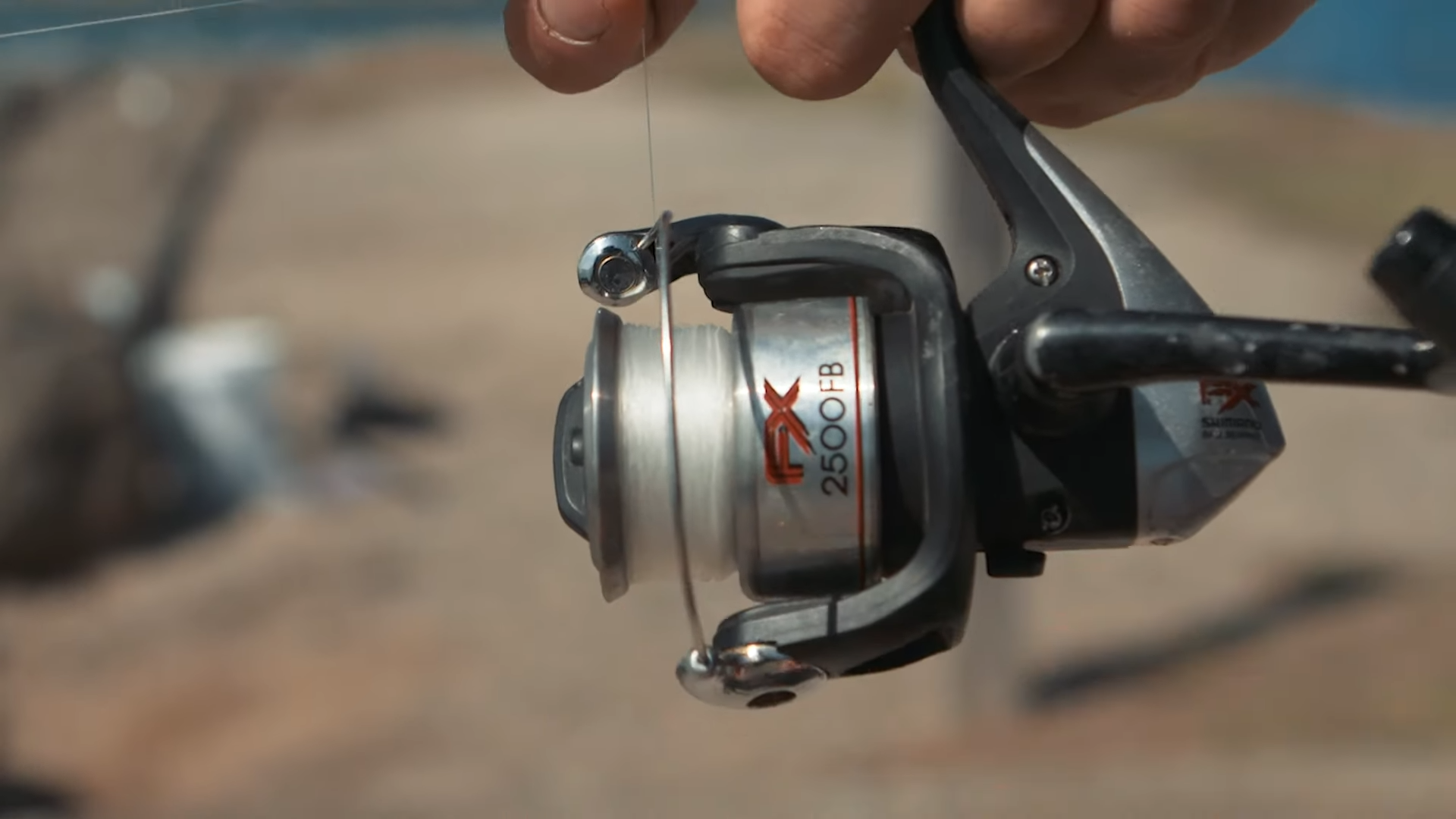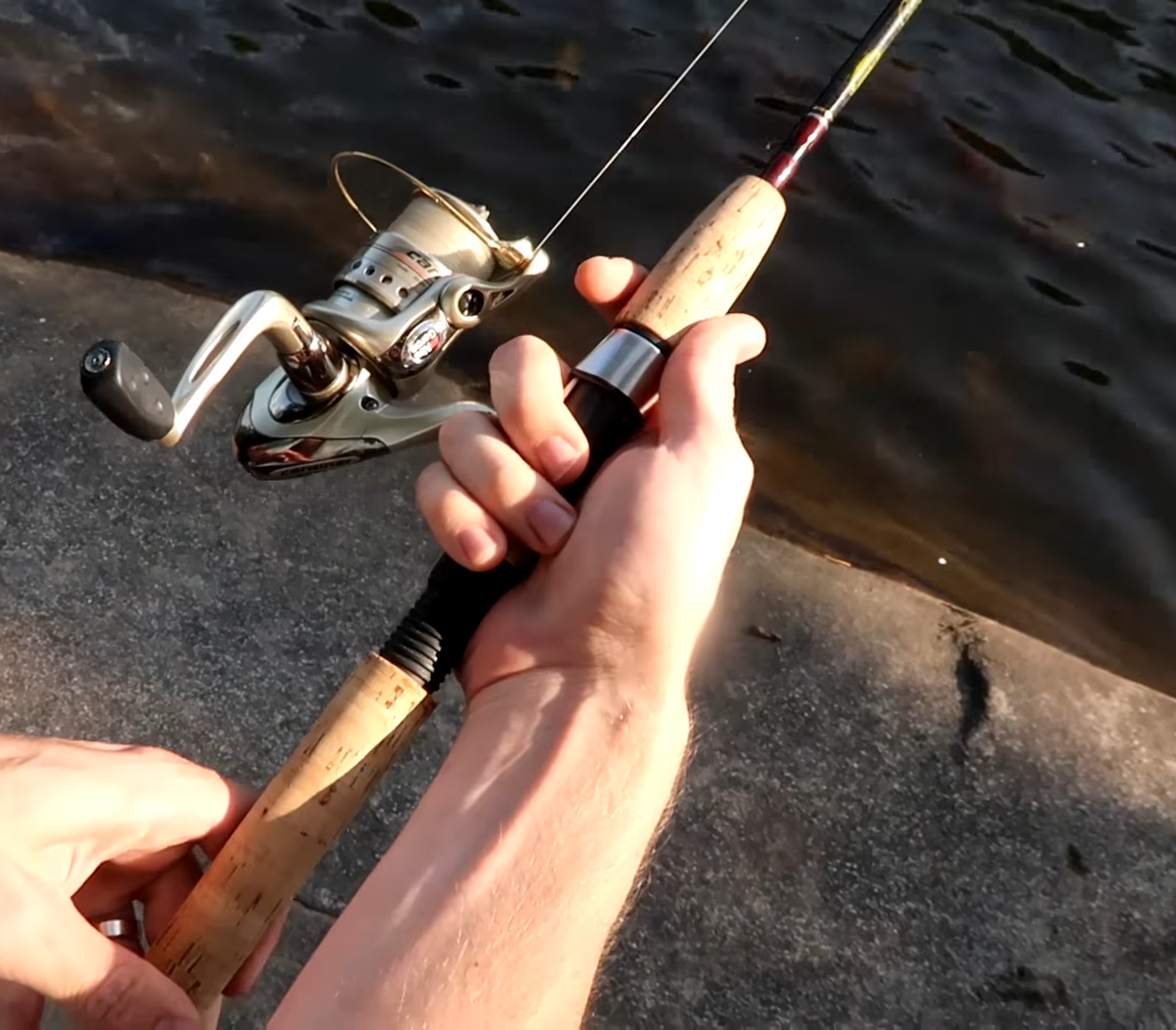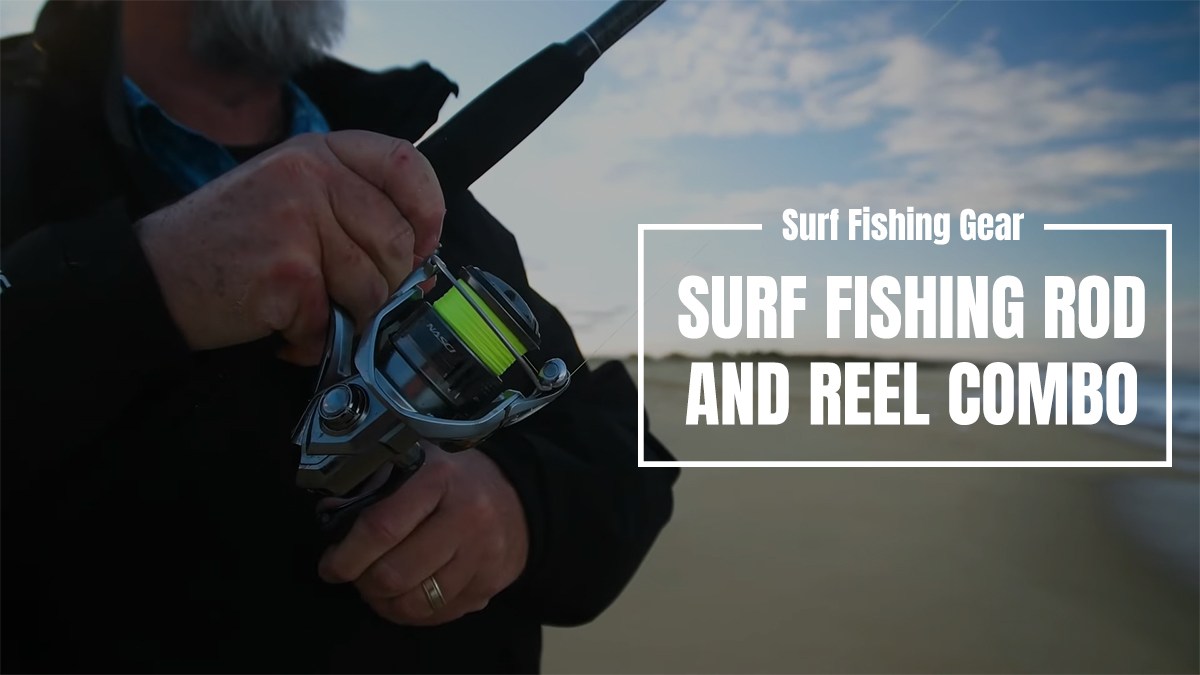Fishing is beloved by anglers worldwide, offering both tranquility and excitement. Choosing between a reel and a cast rod can be overwhelming, as each has its own pros and cons that impact the fishing experience. Join us on a journey to explore spinning vs casting rods and make informed decisions for your fishing adventures. Discover the world of fishing gear and gain valuable insights!
What is a casting rod?

Unlike spinning rods, casting rods are known for their strength and precision, making them the preferred choice for targeting larger fish and navigating dense cover. With guides and the reel positioned on top, casting rods offer seamless line flow for longer, more accurate casts.
Professional anglers favor casting rods for precise lure placements. While mastering casting rods may require practice and skill, they unlock various casting techniques and enhance fishing experiences. Whether you’re an angler or enthusiast, casting rods elevate fishing to new heights, ensuring excitement and accomplishment on every expedition.
What is a spinning rod?

Spinning rods, unlike casting rods, are known for their user-friendly nature and versatility, making them a popular choice for novice anglers and those who use light lines. The design of a spinning rod places the guides and reel underneath, ensuring balanced weight and comfort during extended use. The larger first guide reduces line friction, resulting in smoother and longer casts.
Spinning rods are also easier to use for casting lightweight lures, making them a great option for beginners. However, they may offer less precision and can be more challenging to control with heavier lines and lures. Both spinning and casting rods have their uses depending on the angler’s needs and fishing scenario.
What’s the difference between spinning vs casting rods?

Spinning and casting rods have distinct differences in design, ease of use, and fishing applications. Casting rods, with guides and reel on top, excel in precision, power, and targeting larger fish. Experienced anglers prefer them for their versatility in casting techniques. On the other hand, spinning rods have guides and reel underneath, making them ideal for lightweight lines and lures.
They are user-friendly, allowing for long and smooth casts, making them popular among beginners and for targeting smaller species. Ultimately, the choice between spinning vs casting rods depends on the angler’s skill level and fishing scenario.
| Aspect | Spinning Rods | Casting Rods |
|---|---|---|
| Guide Size | More and larger guides | Fewer and smaller guides |
| Performance | Excels with lighter lines | Powerful and precise |
| Skill Level | Ideal for beginners and casual anglers | Preferred by experienced anglers |
| Costs | Generally more budget-friendly | Usually higher-priced |
| Reel Type | Spinning reels located underneath | Baitcasting reels on top |
Size of Guides for Casting and Spinning Rods
The size and arrangement of fishing rod guides are crucial for performance. Spinning rods have more and larger guides, resulting in smooth casts and less line friction, especially with lighter lines and lures.
Casting rods, on the other hand, have fewer and smaller guides, allowing for precise casting and better handling of larger fish. When choosing guide size, consider your fishing style and target species. Larger guides on spinning rods are great for long casts with light lures, while smaller guides on casting rods are ideal for accurate casting and handling larger fish.
Performance of Spinning vs Casting Rods
Casting and spinning rods each demonstrate distinct performance cxharacteristics. Casting rods are known for their power and precision, making them an excellent choice for targeting larger fish and executing accurate casts. Their sturdy build allows anglers to handle heavy lines and lures effectively, particularly in challenging fishing scenarios. On the other hand, spinning rods exhibit versatility and user-friendliness, excelling with lighter lines and delivering smooth casting experiences.
This adaptability makes them well-suited for various fishing situations, particularly in open water settings. The decision between casting and spinning rods hinges on several factors, including the angler’s skill level, the specific fishing environment, and the intended species to be pursued. Experienced anglers seeking enhanced control and strength may opt for casting rods, while beginners or those seeking a more accessible and flexible option may find spinning rods to be the better fit. Ultimately, understanding the unique attributes of each rod type empowers anglers to select the ideal tool to optimize their fishing performance.
Experience with Casting and Spinning Rods
From personal experience, using casting and spinning rods can greatly enhance your fishing. Casting rods are powerful and precise, perfect for catching larger fish and navigating dense cover. Their control can turn a tough fishing expedition into a successful one.
Spinning rods are user-friendly and versatile, ideal for quick trips and targeting smaller species. Their design facilitates smooth and long casts in open waters. Plus, they’re comfortable for extended use during long days by the water.
Choosing between spinning and casting rods depends on the fishing situation and angler’s skill level. Having experience with both types diversifies your fishing strategies, allowing adaptation to various environments and targets. Understanding the strengths and limitations of each rod enhances your fishing proficiency and experience.
Costs of Casting and Spinning Rods
The costs of casting and spinning rods are influenced by various factors, such as the material, brand, features, and intended fishing scenarios. Generally, casting rods, with their robust construction and precision-oriented features, tend to be priced higher compared to spinning rods. They are favored by professional anglers who prioritize better performance when targeting larger species and are willing to invest more in their fishing gear.
In contrast, spinning rods, known for their user-friendly nature and versatility, are typically more budget-friendly. They offer an excellent option for beginners or casual anglers who seek quality without a substantial financial commitment. However, it’s worth noting that there are high-end spinning rods available, catering to experienced anglers who prefer this type of rod but desire a more premium experience.
In summary, the costs of casting and spinning rods can vary significantly, with casting rods generally being more expensive due to their advanced attributes designed for heavy-duty fishing. Meanwhile, spinning rods provide an economical choice, delivering excellent value for lighter fishing applications. When selecting between the two, potential buyers should carefully consider their fishing needs, budget, and skill level to make the most suitable choice.
Reels in Spinning vs Casting Rods
The reel is a critical component of any fishing rod. The difference between spinning and casting rods also lies in their reel designs.
Spinning rods are paired with spinning reels located beneath the rod. These reels have an open-faced design that makes them beginner-friendly and enables longer casts with lighter lures. They offer excellent line capacity for long-distance fishing.
On the other hand, casting rods utilize baitcasting reels placed on top. Baitcasting reels are known for their precision and control, making them ideal for targeting larger species or fishing in dense areas. These reels can handle heavier lines and provide better casting accuracy, but they require practice to avoid backlash.
In summary, the choice between spinning and casting rods is influenced by the reel type. Spinning reels are user-friendly and suitable for light fishing, while baitcasting reels offer precision and strength for more challenging conditions. Ultimately, the selection hinges on the angler’s skill, goals, and personal preference.
FAQ.
Which One is Right For You?
The choice between a casting and spinning rod depends on a multitude of factors, each catering to different angling preferences and situations. If you’re a beginner or prefer lighter lures and longer casts, the user-friendliness and versatility of spinning rods make them an ideal choice. Their wide-range compatibility with various fishing environments also makes them a great all-around fishing tool.
On the other hand, if pinpoint casting accuracy, power, and targeting larger fish are your priorities, then casting rods might serve you better. They offer enhanced control and can handle heavier lines and lures. However, they require practice to harness their full potential and are better suited for experienced anglers.
What is a Medium Light Casting Rod Used For?
A medium-light casting rod is a versatile tool for fishing. It offers a good balance of sensitivity and power, making it suitable for various fishing scenarios. With this rod, you can feel even the slightest bites, making it great for lure fishing. It’s also strong enough to handle fights with heavier fish. Whether you are fishing in freshwater or saltwater, this rod is perfectly suited for targeting species such as bass, walleye, and medium-sized catfish.. It’s a popular choice for anglers looking for a single rod that can handle different fishing situations effectively.
What is the difference between fishing rods?
Shorter rods give more power to fighting a fish. They are used for trolling and big game fishing. Longer rods can cast more distance — surfcasting rods and fly rods are very long, up to 14 feet. These rods disassemble into up to four pieces for less demanding transport.
Summary of casting rod vs spinning rod

Spinning rods, with their user-friendly nature and versatility, are suitable for beginners and those targeting smaller species. They are a staple for light fishing and long casts. On the other hand, casting rods are known for their precision and power, making them the go-to choice for experienced anglers targeting larger species. They offer better control for heavy-duty fishing scenarios.
The decision between these two options primarily relies on the angler’s proficiency, the targeted species, and the fishing conditions. Having a thorough understanding of the distinct strengths and limitations of each type of rod is crucial for maximizing one’s fishing experience.
source https://bassfishingarchives.com/spinning-vs-casting-rod/ by Clay Dyer

No comments:
Post a Comment